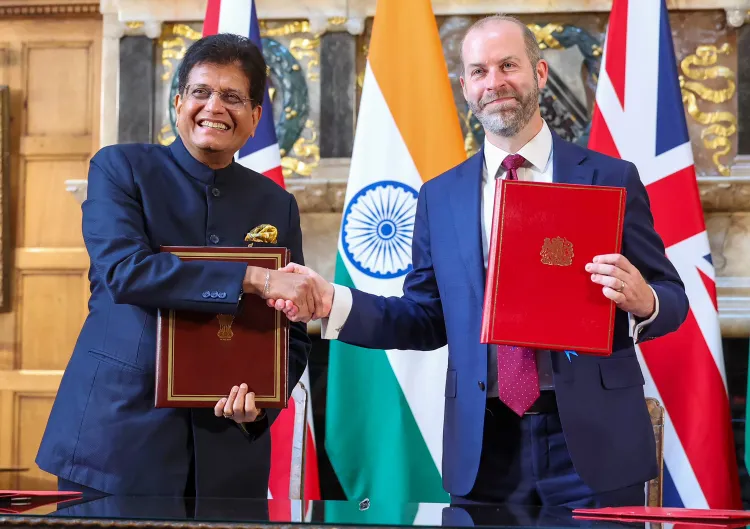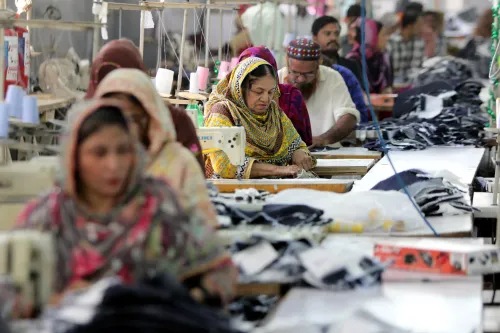How Will the Domestic Mineral Industry Benefit from the India-UK Trade Pact?

Synopsis
Key Takeaways
- India-UK CETA to boost the domestic mineral industry.
- Enhanced market access for the aluminium sector.
- Opportunities for R&D collaboration.
- Reduction in tariffs for both nations.
- Consumer benefits include lower prices on imported goods.
New Delhi, Aug 13 (NationPress) The Comprehensive Economic and Trade Agreement (CETA) between India and the UK is poised to significantly advantage the domestic mineral industry, as per the insights from the Ministry of Mines.
V.L. Kantha Rao, the Secretary of Mines, pointed out the promising prospects for the Indian mineral sector, especially the aluminium segment, regarding improved market access and competitive edge in the FTA partner nation.
To effectively leverage the benefits of CETA, he stressed the importance of comprehending the product demand in the UK through organized roadshows. He also mentioned the potential for collaborative research and development (R&D) initiatives between both nations.
The Ministry of Mines hosted a webinar aimed at uniting the Indian mineral industry to explore the potential advantages and opportunities stemming from the India-UK CETA.
This event featured participation from high-ranking officials within the Ministry of Mines and its affiliated organizations; the Economic Minister from the High Commission of India (HCI) in London, UK; as well as industry leaders and representatives from various organizations, including the Federation of Indian Mineral Industries (FIMI), Aluminium Association of India (AAI), Aluminium Secondary Manufacturers Association (ASMA), and the Material Recycling Association of India (MRAI).
Key industry figures such as BP Singh, CMD of NALCO; Rajesh Kumar, CEO of BALCO; and B.K. Bhatia, DG of FIMI, welcomed the trade agreement, discussing potential strategies for the Indian mineral sector, particularly in the primary and secondary aluminium industries, to gain traction in the UK market.
Dr. Anupam Agnihotri, Director of JNARDDC, provided insights into advancing institutional cooperation in R&D.
Over 230 participants from various sectors joined the informative webinar.
As part of the India-UK agreement, India is set to reduce tariffs on 90% of British products, while the UK will lower duties on 99% of Indian exports. This significant reduction of tariff lines and regulatory hurdles aims to improve market access and lower operational costs for businesses on both ends.
For Indian consumers, this deal is expected to decrease prices on imports such as Scotch whisky, gin, luxury vehicles, cosmetics, and medical equipment. Indian exporters in textiles and leather will benefit from zero duties, enhancing their competitiveness against countries like Bangladesh and Cambodia. Furthermore, the agreement guarantees that Indian agricultural exports will receive tariff parity with leading European exporters like Germany, a change anticipated to greatly assist Indian farmers.









